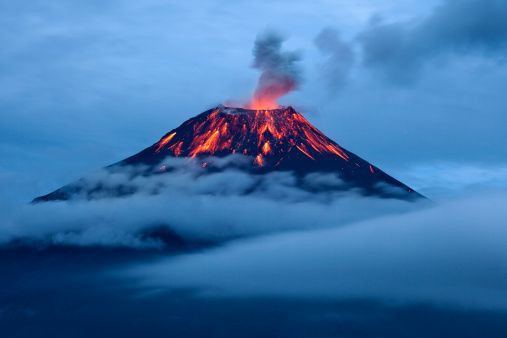Artificially Cooling Earth By Mimicking Volcano Eruptions Could Be Catastrophic: Study

Scientists across the world believe that a process called Geo-engineering, which involves imitating the atmospheric conditions after a massive volcanic eruption by artificially injecting aerosols into the atmosphere, can help counter the effects of global warming. But, a team of researchers have debunked this theory and countered it by saying this process could in turn have a devastating effect on global regions that are already prone to tumultuous weather patterns like severe storms or chronic drought.
The new Geo-engineering theory is seen by many as a last-ditch and only way to save the planet from the harm caused by global warming. Manipulating earth's temperature artificially, some feel, could help counter the rising temperatures.
However, according to a new study co-authored by University of Exeter expert Angus Ferraro, geo-engineering could cause massive changes to rainfall patterns around the equator, drying the tropical rainforests in South America and Asia and intensifying periods of drought in Africa. The team ran a model that plotted the impact of spraying sulfate aerosols into the sky using a plane, which is the method suggested by Geo-engineering theorists to counter the warming. They found that an annual spray of aerosols in both hemispheres would affect the climate between 2020 and 2070 — and it found that there could be negative consequences in both regions. The study and results were published in the journal Nature Communications.
Geo-engineering studies and suggestions are not old. The debate has been on for a while now about the advantages and disadvantages of implementing this to counter climate change. Governments and the world’s leading climate scientists on the UN’s Intergovernmental Panel on Climate Change (IPCC) discussed the prospect of artificially cooling the climate at its meeting in Stockholm in September 2013.
In-theory, the idea works by mimicking the gargantuan volcanic eruptions in the past that helped create the conditions on earth responsible for the origin of life. According to an IBT report, the Wapshilla eruption that occurred 16.5 million years ago cooled earth down during a period of steady global rise in temperatures and helped spawn life.
According to a press release on the University of Exeter, the aerosol-induced cooling works by reflecting sunlight which reduces the sunlight reaching earths’ surface. "This occurs naturally after big volcanic eruptions, such as that of Mount Pinatubo in 1991, which led to a large, short-term dip in global temperatures. Aerosols could potentially be artificially sprayed into the upper atmosphere to counteract the effects of climate change.
"To reduce global temperatures enough to counter effects of global warming would require a massive injection of aerosol — the small particles that reflect sunlight back into space. This would be equivalent to a volcanic eruption five times the size of that of Mount Pinatubo in 1991 every year," Angus said in the release.
The study revealed the impact of the aerosol spraying to be much more catastrophic than previously estimated. The aerosols reflect sunlight away from earth. This cools the surface temperature. Aerosols further cool earth by absorbing heat energy from the surface which warms the stratosphere. "We have shown for the first time that warming the stratosphere makes the troposphere below more stable, weakening upward motion and reducing the amount of rainfall at the surface," he added.
This could cause massive damages across several parts of the globe. There is a massive information gap when it comes to the negative impacts of artificial methods of cooling earth. The team hopes that the study could push us to find better alternatives that aren’t potentially as harmful.
"On the evidence of this research, stratospheric aerosol geo-engineering is not providing world leaders with any easy answers to the problem of climate change," said professor Ellie Highwood, collaborator on the research.
© Copyright IBTimes 2025. All rights reserved.





















